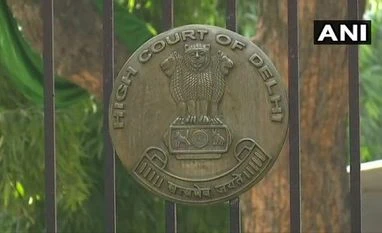The Delhi High Court has granted six weeks' time to the Centre to inform it about the outcome of consultations and deliberations with stakeholders on draft rules to regulate e-pharmacies.
The court was hearing pleas seeking a ban on "illegal" sale of drugs online and challenging the draft rules published by the Ministry of Health and Family Welfare to further amend the Drugs and Cosmetics Rules.
A bench of Chief Justice Satish Chandra Sharma and Justice Subramonium Prasad made it clear that pendency of these matters will not come in way of the Central government in taking action against persons who are violating the court's December 12, 2018 interim order putting a stay on the sale of drugs without licence by online pharmacies.
On perusing the latest status report filed by the Centre, the court noted it has been categorically stated that the Union of India has not yet finalised the draft notification of August 2018 and it is pending for consultation and deliberations.
The Union of India is granted six weeks' time to inform the outcome of the consultations and deliberations and also to inform the final stand taken by the Union of India in the matter. List on August 28, 2023. It is made clear that the pendency of the present matters will not come in the way of the Union of India in taking action against the persons who are violating the interim order dated December 12, 2018, the bench said.
The Ministry of Health and Family Welfare issued the draft amendment to the Rules, 1945 for inclusion of the rules to regulate online sale of drugs vide its August 28, 2018 notification and had called for objections and suggestions from all stakeholders to be considered by the Central government.
Also Read
Thereafter, based on the comments/suggestions received, after due consideration, the draft rules may be finalised for publication in the official Gazette, the ministry has stated in the status report.
It said the petitioners have given representation to authorities which are under consideration.
Considering the totality of the facts and circumstances, wherein large number of concerns have been raised on the draft notification received from various stakeholders, their views have to be taken into account and as such the matter needs further deliberations, the report said.
It also said that the authorities have received a lot of representations from various stakeholders on the draft rules and majority of them had opposed the draft rules on online sale of drugs.
It said the draft notification is pending consultations and deliberations and the Central Drugs Standard Control Organisation (CDSCO) is contemplating to hold fresh stakeholder consultations with various associations or affected parties.
The status report was filed on petitions seeking a ban on "illegal" sale of drugs online.
Petitioner association South Chemists and Distributors Association, which has challenged the ministry's August 2018 notification, said the draft rules are being pushed through in serious violation of the law, ignoring the health hazards caused due to sale of medicines online without proper regulations.
Petitioner Zaheer Ahmed has sought contempt action against e-pharmacies for continuing to sell drugs online despite a high court order staying such activity.
The petition also seeks contempt action against the central government for allegedly not taking any step against the defaulting e-pharmacies.
The high court had on December 12, 2018 stayed the sale of drugs without licence by online pharmacies while hearing Ahmed's PIL.
Some of the e-pharmacies had earlier told the high court that they do not require a licence for online sale of drugs and prescription medicines as they do not sell them and instead they are only delivering the medications akin to food delivery app Swiggy.
Just like Swiggy does not require a restaurant's licence to deliver food, they do not need a licence to deliver medicines to customers who purchase drugs online, the e-pharmacies had told the court.
The submission had come during the hearing of the plea seeking contempt action against e-pharmacies for continuing to sell drugs online despite a high court order staying such activity.
The court had earlier sought responses of the Centre, Delhi government, CDSCO and the Pharmacy Council of India to the petition.
The petitioner had said "llegal" sale of medicines online will lead to a "drug epidemic", drug abuse and misutilisation of habit forming and addictive drugs.
The PIL said since there was no mechanism to control the sale of medicines online, it puts health and lives of people at a high risk and affects their right to a safe and healthy life under Article 21 of the Constitution.
"Online pharmacies are operating without a drug licence and cannot be regulated in the present regime. Unregulated and unlicensed sale of medicines will increase risk of spurious, misbranded and sub-standard drugs being sold," the plea submitted.
It claimed the Ministry of Health and Family Welfare, Central Drugs Standard Control Organisation and an expert committee appointed by the drug consultative committee have already concluded the online sale of medicines is in contravention of the provisions of Drugs and Cosmetics Act, 1940 and the other allied laws.
Still lakhs of drugs are being sold on the Internet every day, it said, adding some of the drugs/ medicines contain narcotic and psychotropic substances and some can cause antibiotic resistant-bacteria which is a threat not only to the patient but to humanity at large.
"It is a matter of public knowledge that e-commerce websites have been caught on numerous occasions selling fake products. Unlike consumer items, drugs are extremely potent substances and consuming the wrong dose or fake medicine can have fatal consequences on the patient," it had said.
A large number of children use the Internet and they could be victims of wrong medications, it added.
(Only the headline and picture of this report may have been reworked by the Business Standard staff; the rest of the content is auto-generated from a syndicated feed.)
)